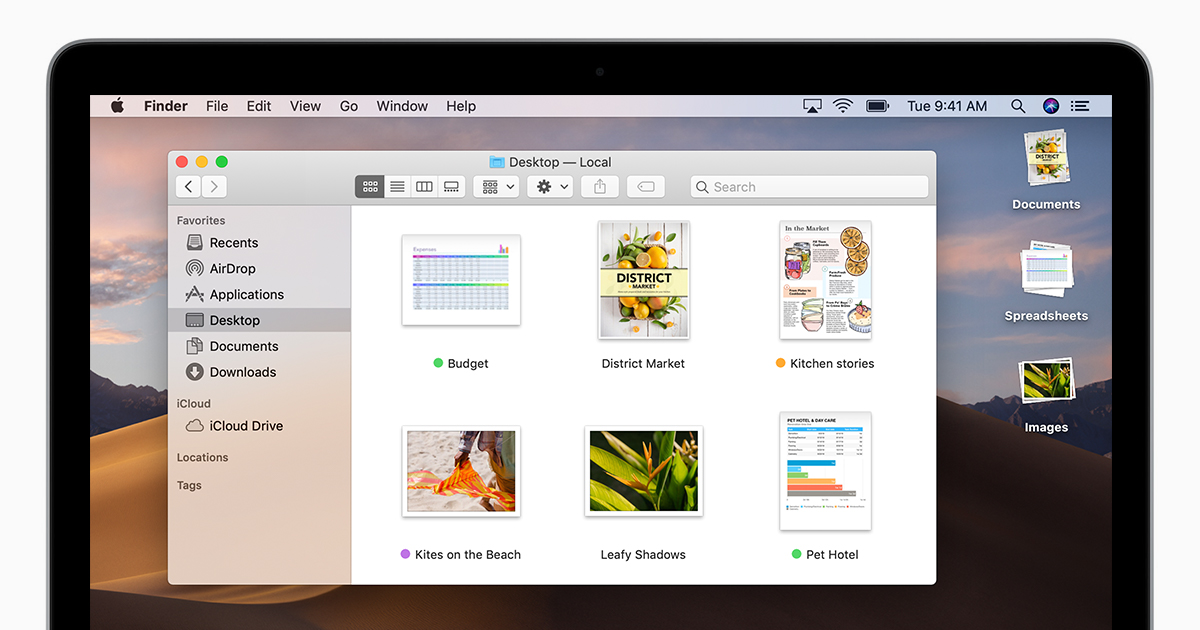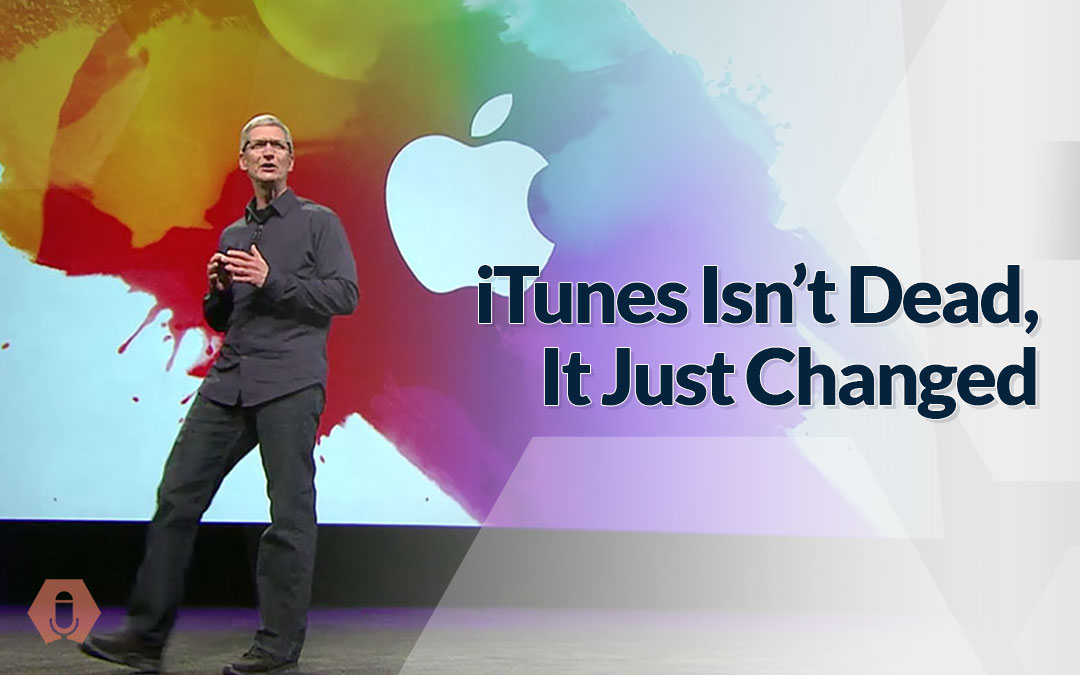It has recently been announced that tech giant Apple is dismantling iTunes software and instead launching standalone versions of its Music, Podcasts, and TV apps for Mac users on the next version of macOS Catalina.
It’s no surprise that iTunes is going away. As of 2019, 50 million people use Apple Music, and there are 75 million subscribers on Spotify Premium. The use of iTunes has slowly declined as more people have switched over to alternative services, and it feels like the right time to say goodbye to the platform. But is iTunes really dead? What will happen to your media? Is this going to negatively impact podcasters?
We discuss in more detail below!
Bye-Bye iTunes
There was a time when iTunes made the lives easier of music lovers everywhere, but you simply can’t argue with the facts. More people are using Apple Music and Spotify now than ever before. Of course, there are people who believe that iTunes has always been a bloated, poorly optimized mess, and has been outdated for some time. Nobody is disputing that. However, the announcement is still making some old users nostalgic. Is there anything we could have done collectively to save iTunes? Probably not. It was born in 2001, and 18 years later, we should all be more than ready to let it go.
However, all is not lost. Now, it’s time for the individual components of iTunes to get their own Mac apps to improve usability for everyone. Although some people will be sad to see iTunes go (mainly for nostalgic reasons), many are sure to be delighted with the change.
Don’t worry. If you’re one of the people who is feeling terrified at the prospect of losing iTunes, there are many benefits. You could argue that we’re not losing iTunes at all, and that it’s simply transcending and evolving into something that most of us can get behind in the modern age.
iTunes is transforming into something new. This move is an attempt to help people. It will make buying, subscribing, owning, and using content far easier and more logical. The simplicity of it all will make buying far easier and more pleasurable for users.

Will You Lose Your Media?
You’re not going to lose your media – you can breathe a sigh of relief!
The new apps will simply organize your media files just like the same apps on iOS. You will still have all of the music you have ever purchased and imported into your iTunes library. The files will simply be migrated into the new Apple Music app. Playlists and smart playlists you have created in iTunes will also be found there. Music and TV shows you have purchased or rented using iTunes will be transported to the new Apple TV app, where you can buy or rent movies and TV shows for future reference.
Podcasts that you subscribed or added to iTunes will be in the new Podcasts app, and audio-books will be in the updated Apple Books app.
iTunes Isn’t Dead
The iTunes app simply won’t exist on the new Mac operating system. You will still be able to buy music from the iTunes store. It’ll just exist on the sidebar in the new Music app. Don’t panic if you have gift cards and credits, as the company has stated that they are still fine to use. We’re not sure how long they will be of use for, so this is worth looking into if you have a gift card or credit you’ve been sitting on.
If you’re using Windows OS, you will still have access to iTunes…for now. Apple made Apple Music accessible through Android and may one day do the same for Windows. But for now, Windows OS users can still enjoy the classic iTunes to organize their media files.
What About Backing Up My Files?
Backing up your files will mean going to a new destination to backup, restore, and sync any of your Apple devices on the new operating system. All of the functions will move to the finder app.

How This Change Will Affect Podcasters
One thing that has gotten many people talking is the ‘new’ Apple Podcast and how it will affect podcasters. The reality for most podcasters and listeners is that very little will change. iPhone users will continue to access their content through three separate apps: Apple Music, Apple TV, and Apple Podcasts.
The podcasts app for Mac allows users to search, discover, subscribe, and listen to various audio programs. Listening data is synced across all Apple devices, and users can do the same in the new app, too. Although very little will change in the long run, there’s likely to be a few surprises on the horizon. In fact, there’s a brand new feature that has gotten many people excited.
Machine learning technology is being put to use to index spoken words in podcasts. Apple Podcasts will now allow listeners to discover shows based on audio transcripts, topics, and people. This means podcasts could potentially be recommended to listeners based on their interests. This can only be a good thing for podcasters, as more people are bound to discover their content. Show and episode pages will also display images of hosts and guests. To begin with, however, the features are only expected to be rolled out to a selection of top shows, with more expected to be added later on in the year.
In short: there’s nothing that you need to worry about right now.
Another small change is the alterations to podcast categories. Later in the summer, categories will change and there will be a selection of top level categories like Fiction, History, and True Crime, as well as subcategories. Some subcategories will be discontinued, so this may affect certain podcasters. That being said, it will likely just be a case of selecting a new subcategory for your podcast. There are going to be over 70 new categories, and around 30 categories that will be removed or renamed.
If your current podcast category is on the list to be removed, it’s a good idea to start thinking about where your show will fit in the new structure in the Apple Podcast App.


 We are committed to serving the podcasting community by creating meaningful content, useful tools, and high-quality services that make podcasting more fun and rewarding.
We are committed to serving the podcasting community by creating meaningful content, useful tools, and high-quality services that make podcasting more fun and rewarding.